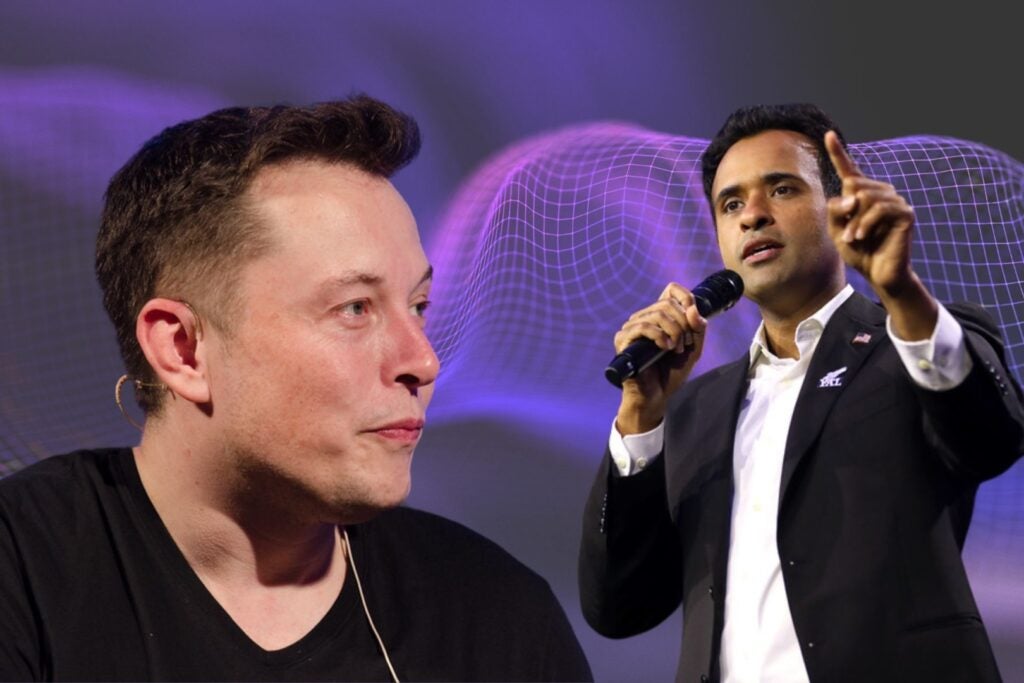
As U.S. headline and core consumer price inflation increased in October and GDP growth remained resilient in Q3, billionaire Elon Musk has presented a hot take on how “excess” government spending is a major cause of inflation.
Tesla Inc. and SpaceX CEO, Musk – who has been named co-lead of DOGE or Department of Government Efficiency along with Republican politician Vivek Ramaswamy – has yet again signaled his vision going into this new role which is also meant to “restructure federal agencies and reduce government spending.”
Balance Between Income And Expenditure
While government spending and its revenue streams determine how the economy will look, it also depends on other large fiscal and monetary decisions. An expansionary fiscal policy reduces the budget surplus or increases the budget deficit.
In general, decreased taxes and increased government spending, both increase a budget deficit, overall demand, economic growth, and employment. All the Keynesian economists, who follow the work of British economist John Maynard Keynes, believe that fiscal policy, through its effect on aggregate demand, can strongly impact economic growth.
To simplify this, if an individual spends more than they earn, they will have to borrow money to meet their needs. A steady supply from lenders and low interest rates will just increase the amount of debt held by the individuals. This is why in the current context, the Treasury yields have risen, pricing in the inflation expectations. Thus, the balance between income and expenditure becomes imperative. However, in the larger context, a country usually adjusts its budget deficit or surplus to maintain balance and stability.
Thus, Musk’s claim on higher government spending, in contrast to, less earnings via taxes, tariffs, or other channels, causes inflation to rise.
Replying to Musk’s tweet, Steve Burns, trader and founder of NewTraderU.com, shared a rare video of the Nobel Prize-winning economist Milton Friedman, where he talks about what causes inflation according to his theory.
However, monetarists believe that fiscal stimulus’s effect is only temporary and that monetary policy should increase or decrease inflationary pressures over time instead of influencing aggregate demand to counter-cyclical movements in the economy.
The Catch 22
According to Musk’s ideas, increasing the government’s revenue stream and decreasing spending can help control inflation.
However, consumers don’t prefer higher taxes which most likely prompts DOGE co-head Musk to decrease federal spending via the contribution of their findings by the proposed task force.
Guy Berger, the director of economic research at the Burning Glass Institute, states how higher taxes affect consumers and how the monetary policy has its own limitations as they cannot target rates below “zero” to control inflation.
Additionally, President-elect Donald Trump has also spoken about imposing higher tariffs and cutting tax rates, both of which could result in higher inflation.
A tariff placed on imported goods increases their prices domestically while decreasing the quantity imported. Domestic producers gain, foreign exporters lose, and the domestic government only gains by the amount of the tariff revenues.
While the proposed policies have a conflicting view as compared to what is necessary to control inflation, a strategic and well-planned fiscal and monetary policy is important to control inflation while maintaining economic growth. Berger adds that “one technical solution here is less reliance on ad hoc stimulus packages, and more on rule-based automatic stabilizers.”
Even though Musk believes that cutting “wasteful government spending” can help curtail inflation, the larger picture in line with Trump’s promised policies doesn’t seem simple.
To sum it up, “When the economy is sick, give it the medicine it needs, when it needs it, at doses calibrated to the intensity of the illness,” adds Berger.
Impact On Treasury Yields
In the current context as the inflation fears continue to linger, U.S. Treasury yields have also spiked. This means that debt is cheaper, giving away more purchasing power to debtholders, thus stoking inflation.
Considering the October CPI data, Federal Reserve Chair Jerome Powell, using monetary policy as a tool, has pared back the interest rate cut expectations. “The economy is not sending any signals that we need to be in a hurry to lower rate,” Powell said on Thursday in Dallas.
The two-year yields ended Thursday at 4.32%, whereas the ten-year yields jumped to 4.42%. Fiscally, if the government borrows more from the public after cutting taxes the longer end of the yield curve is also bound to rise, signaling inflation fears.
Read Next:
Image via Flickr
© 2024 Benzinga.com. Benzinga does not provide investment advice. All rights reserved.